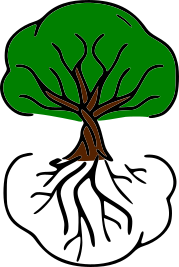In Literature Appetizer, Ben gives you just a taste of a book. Not meant to replace the full meal, this is meant to whet your appetite. Bon appetit!
Over my years of teaching about the environment, I have been fortunate to meet so many different people; from a farmer from Maine who is the best skier I know to the leading expert on native bees in Washington. With many of them I have also had long philosophical talks (usually with a drink or two). The book Dwelling With the Land: Cultivating an Ontological Ethos feels like the book form of those late night conversions.
Tim Bock is a dear friend of mine from working at Lutherlyn. Currently he lives near Grove City with his wife, dog, and a plot of land. By just taking a walk through his back yard, you can get a feeling for his core philosophy. Yes there are sections that he has plowed the land for farming. But he has also set aside a large part of it for the organisms to shape it as they see fit. Tim gives the best summary of his book on page 3:
“The human being cannot exist without a stable, livable environment, and as such, the question of environmental concern becomes fundamental to the question of being.”
Dwelling With the Land is a journey through various philosophers' thoughts with the relationship between people and the environment they live in. While the general public are just beginning to understand basic environmental philosophical ideas (anthropocentrism, caring for the land, etc), the philosophers are leaps and bounds ahead into topics like "what really is wilderness" and ecofeminism.
While this is a very dense read, I recommend this book to anyone who is nervous about how we humans should go forward in the next few decades. While it doesn't provide direct answers, Dwelling With the Land starts many ideas that the reader can walk down at their own pace.
“We should “rethink our axioms,” rethink the fundamental dispositions that we hold if we are to achieve any lasting change. It is not simply enough to put legislative measures into place, plant a tree or community garden, donate to conservation organizations or participate in political activism.”
We humans need to rethink how we are to live on this planet if we are to have any hope for change.

